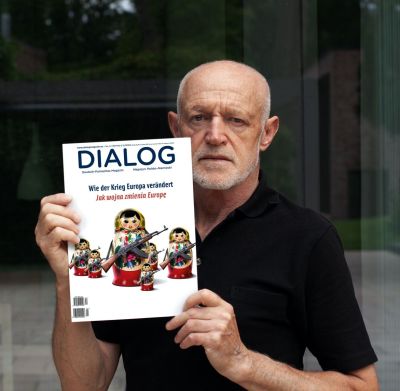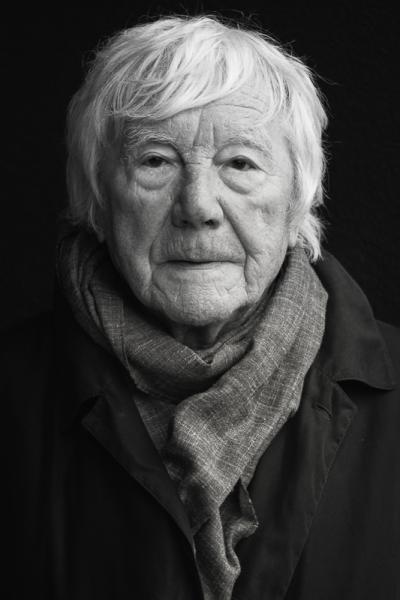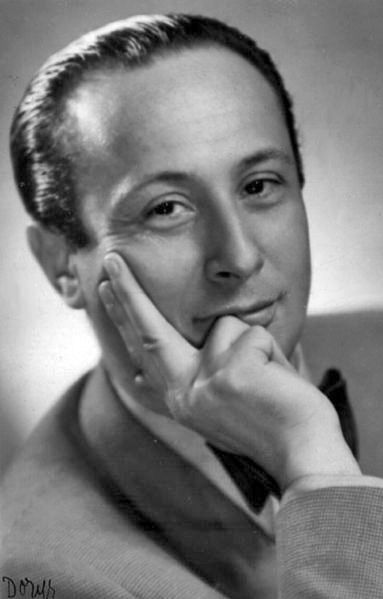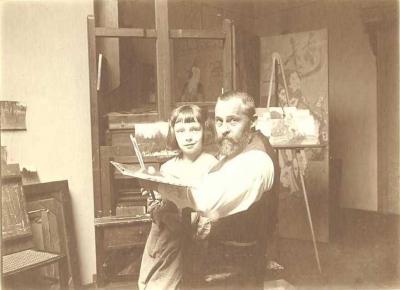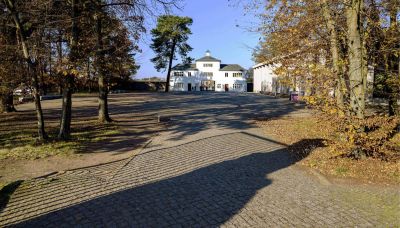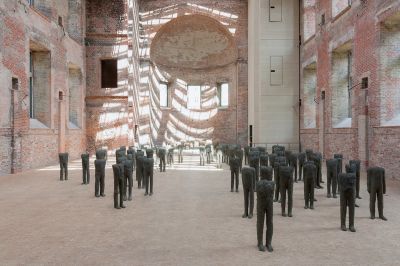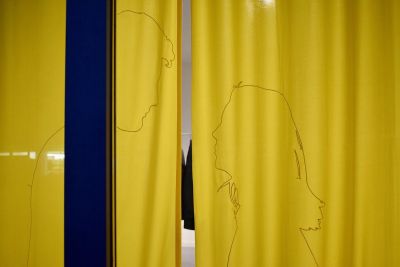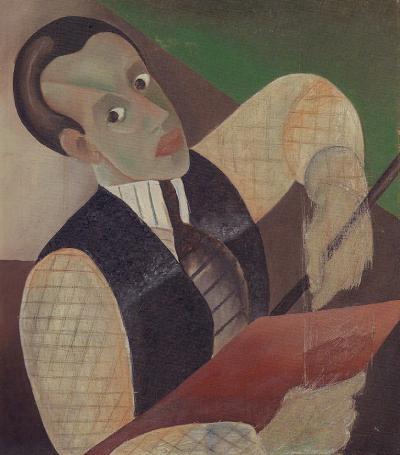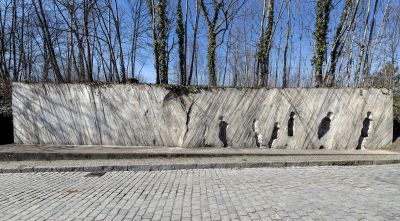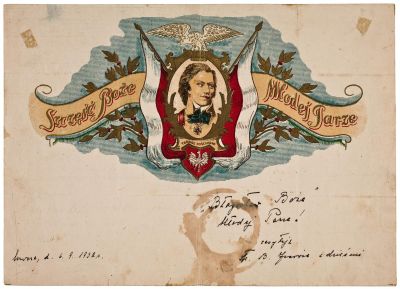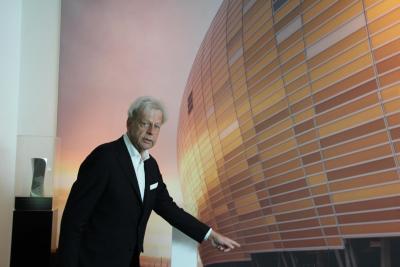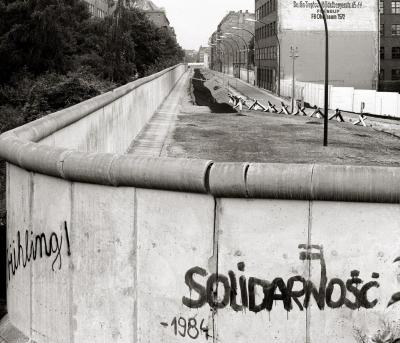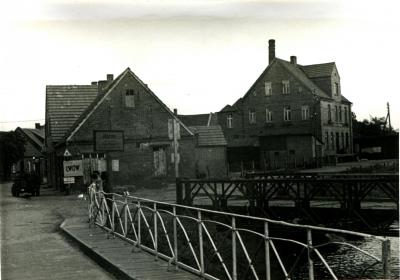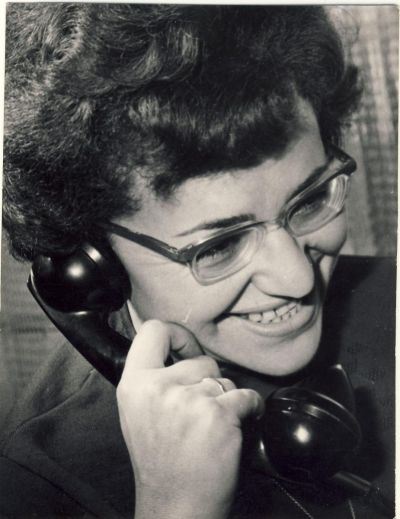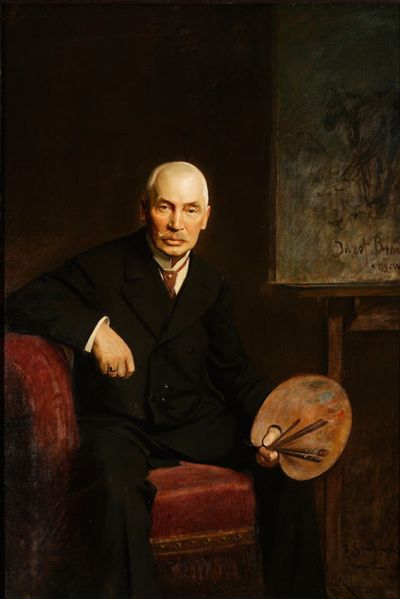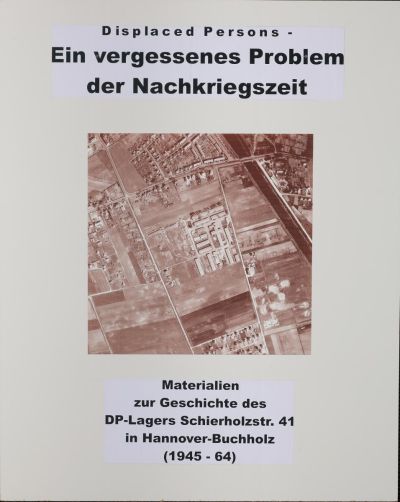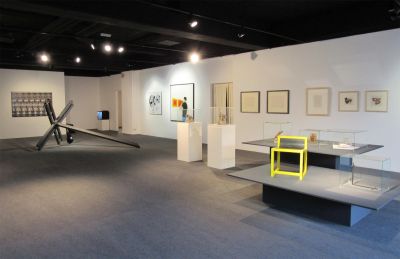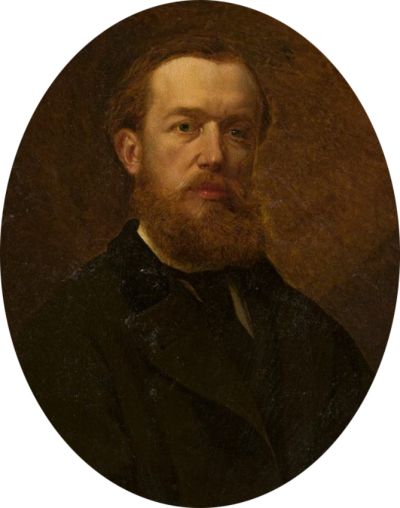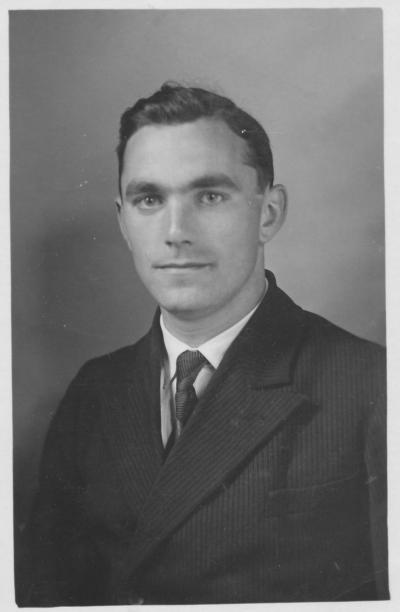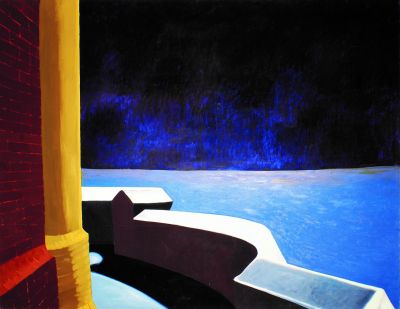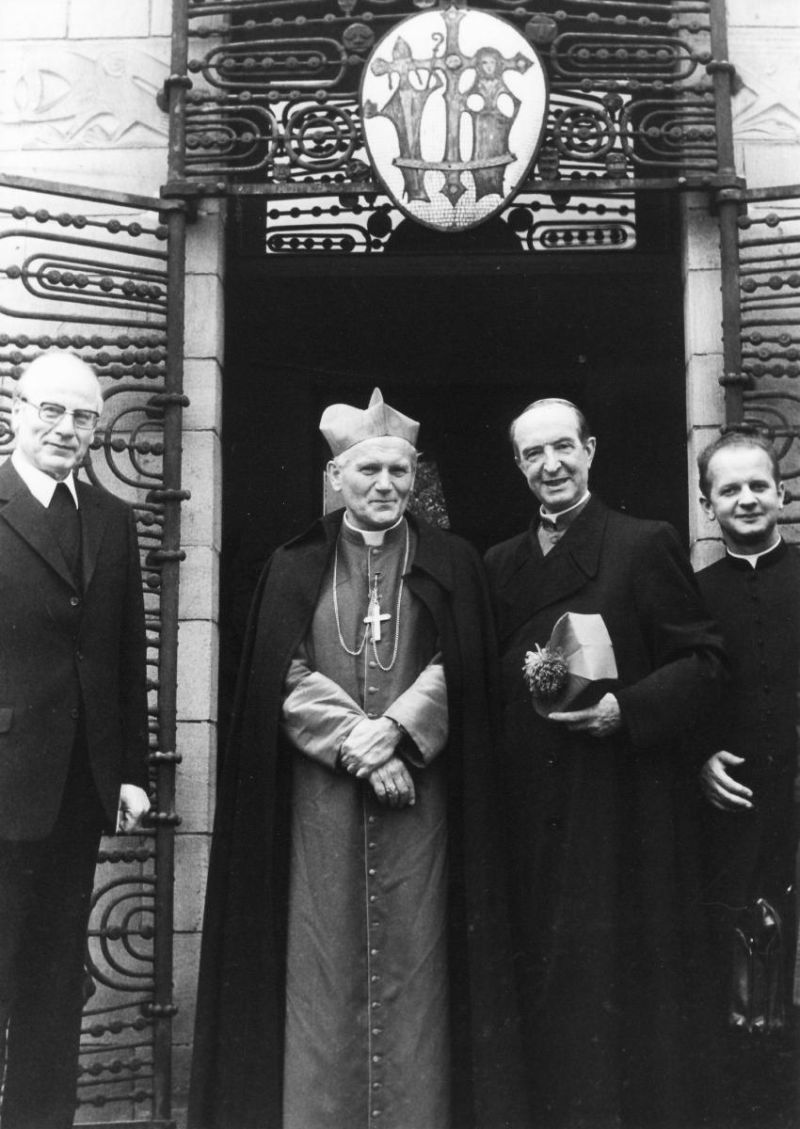Franz Hengsbach – Polish Pastor, Bishop and Cardinal
Mediathek Sorted
-
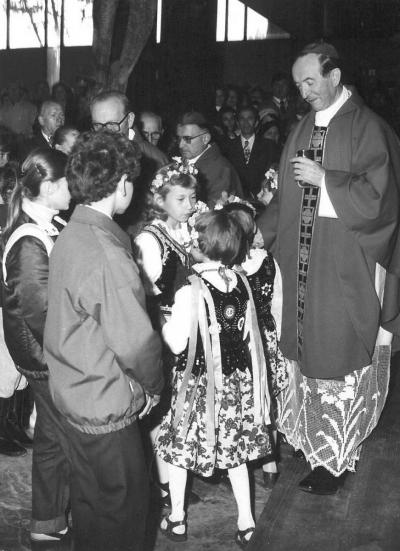
-
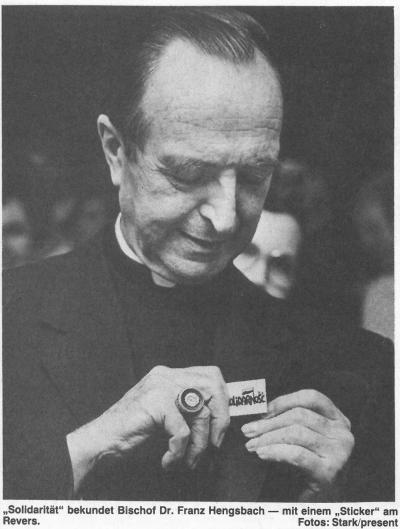
-
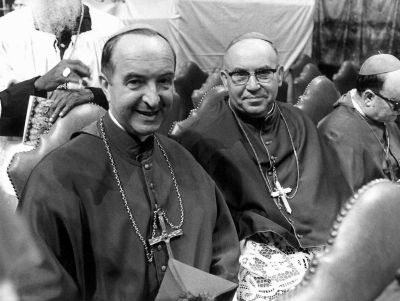
-
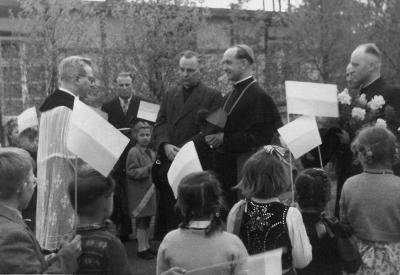
-

Franz Hengsbach - Hörspiel von "COSMO Radio po polsku"

For this reason it is almost inevitable for us to be interested in the activities of Polish priests at the turn of the 20th century, and the difficulties and conflicts they faced in carrying out their duties. This was particularly the case because the Prussian state had an inherent distrust of Polish immigrants and introduced underhand means to make life difficult for them. The most prominent Polish priests were Josef Szotowski und Franz Liss who not only provided spiritual care but were also concerned with upholding Polish customs and consciousness amongst the “Ruhr Poles”. By contrast very little attention has been given to those German priests who came from the ranks of local dioceses, although they were also responsible for providing pastoral care. After the Second World War, not least because of their pastoral experiences, these priests were often mouthpieces and active campaigners in reconciling the German and Polish sections of the community
In order to guarantee pastoral care for the ever increasing amount of Catholic Polish immigrants in central and west Germany several German dioceses set up courses in Polish in their theological colleges. Alongside the dioceses in the provinces of East Prussia it was principally the diocese of Paderborn which prepared its students to provide spiritual care to Polish-speaking members of the faith. This was mainly because local churches in and around Paderborn had been greatly affected by Polish immigration into the Westphalian part of the Ruhrgebiet and because of the seasonal influx of Polish workers into farms in central Germany. At the same time efforts were made to prevent any Polish national agitation on the part of Polish pastors. Even when budding priests from Paderborn regarded their additional studies and Polish lessons mostly as a burden which they did not always take seriously, it was nonetheless possible to train a remarkable number of local pastors right up to the end of the 1930s. These were responsible for the pastoral care (full-time and part-time) of Polish Catholics in the various parishes. At the start the circle of pastors included young chaplains, a few of whom later became leading representatives of the Catholic Church in Germany. One of these was the later Bishop of Essen, Franz Hengsbach.
Franz Hengsbach’s first meeting with “Ruhr Poles” must have been at the beginning of the 1920s in the Gelsenkirchen suburb of Schalke where his uncle Konrad Hengsbach was the priest of the parish of St Joseph which contained a large proportion of Polish-speaking Catholics. Franz Hengsbach followed his uncle’s calling and also became a priest in 1937. In the theological college in Paderborn Hengsbach took the opportunity to learn Polish in order to be able to care for Polish Catholics in the working class parishes of the Ruhr. This was the case in his very first parish in the Herne suburb of Baukau where he was given the responsibility of caring for Polish Catholics. Sometime later Hengsbach wrote the following about his time there: “Since I had learnt a little Polish in my studies I was appointed as a part-time pastor for Polish speaking citizens. My main duty was to hold church services for the Polish speaking members of the parish in their mother tongue, and help them feel at home in the church”. [1] That said, his activities as a pastor to the Poles soon came to an abrupt end with the outbreak of the Second World War on 1st September 1939 when pastoral care for the Polish was forbidden. “It goes without saying that the personal contacts I had built up till then were broken. Nonetheless during the war I was also able to provide a lot of personal pastoral care to the Poles in our parish“.[2] In doing so Hengsbach was not only able to maintain and improve his knowledge of Polish but also came into contact with the specific features and forms of Polish Catholic religious practices. This knowledge was later to prove extremely helpful.
Many years later Hengsbach’s contemporaries from his time in Herne still associated him with his pastoral duties and linked their reminiscences with “the young vicar who provided pastoral care and church services to the Poles – with Polish hymns and sermons – even under Hitler’s Nazi regime after such duties had clearly been abolished.”[3] After the Second World War Hengsbach was appointed to the Archiepiscopal Curia in Paderborn and was subsequently entrusted with many leading duties, above all with the post of head of the office for pastoral care. In 1953 he was consecrated as a suffragan Bishop, where he was also responsible for pastoral care amongst the Poles in his diocese. As part of his responsibilities he also visited the camp for Polish displaced persons in Augustdorf in 1955.
Franz Hengsbach was appointed to the office of the first Bishop of Essen on 1st January 1958, and later his experience in providing pastoral care to Poles proved to be of great benefit. The Second Vatican Council (1962-1965) brought German and Polish bishops together. Hengsbach made contact with his Polish counterparts right at the start of the Council. When he returned back home he reported that “in the following weeks of the Council my initial contacts led to many meetings between Polish and German bishops”. The personal meetings between the Bishops in Rome were one of the “special fruits of the Council” which ripened and found its most visible expression in the correspondence between the Polish and German episcopates. Because of Hengsbach’s experience in providing pastoral care for Polish citizens he quickly won the trust of his Polish counterparts. He also belonged to the narrow circle of Bishops whom the Archbishop of Breslau, Bolesław Kominek, had introduced to the proceedings of the Polish episcopate, and was one of the German bishops invited to Częstochowa in May 1966 to celebrate the millennium of the conversion of Poland to Christianity.
[1] Diocesan archive Essen (further BAE), NL 1/1560, Talk by Bischof Hengsbach „Auf Schalke“ dated 25.07.1985, o.S.
[2] BAE, NL 1/1454, Interview given by Bishop Hengsbach to Krystyna Grzybowska for Radio Free Europe (Transcript), not dated (probably around 1988), o.S.
[3] Schüppen, Franz: Kardinal Franz Hengsbach (1910-1991). Ein Bürger des Ruhrgebiets mit Herner Hintergrund, in: Binder, Bücher und ein Bischof. Streifzüge durch die Geschichte und Gegenwart von Wanne-Eickel und Herne (= Der Emscherbrücher, vol 14), ed. Gesellschaft für Heimatkunde Wanne-Eickel, Herne 2008, p. 131.
One of the Ruhr bishop’s dearest concerns was reconciliation with the Polish people. His correspondence with bishops in Poland laid the foundation stone for closer relationships and normal dealings between Germans and Poles. Hengsbach regarded his correspondence not only as the “crowning moment” of the meetings between Germans and Poles in Rome, he also saw it as a commitment to the future. In mid October 1965 he noted “In the spirit of the Council! Out of care for our neighbours! Out of the total responsibility for the church, the Polish and German bishops will maintain the lively exchange of ideas and experiences which began so happily in Rome. In this way they wish to serve the peace that is so necessary between both peoples“.[4]
In the following decades Hengsbach devoted his efforts to fulfilling the spirit of what he had written, especially when dealing with extremely sensitive themes which divided the two nations like the Oder-Neisse border in particular. In summer 1966 he took up a very clear stance on this question when he visited a place of pilgrimage called Neviges to address a gathering of Poles from the whole of West Germany. Here he stated “that attempts at reconciliation between Poland and Germany should never fail because of disputes about the eastern border“. He also defended his views over against Germans who had been driven out of Poland.[5]
During the Catholic week in Bochum in 1970 he referred back to the immigration of Polish citizens into the Ruhrgebiet in the 19th century. Hengsbach appealed to his audience: “Where international policies contradict the spirit of Christ they can never be a secure basis for coexistence. [We want] – and I say this deliberately from the middle of the Ruhrgebiet where thousands and thousands of relations of the Polish people have made their home for generations – nothing other than to encourage the growth of a fraternal relationship between both peoples in utter sincerity and in a dialogue of honesty. We shall endorse all the necessary preconditions to achieve this.“[6]
When talking to the press about his correspondence in 1965 and his commitment to German-Polish understanding Bischof Hengsbach never forgot to refer to the years in which he cared for Polish Catholics in Herne. This justified him in being predestined to be responsible for questions about German-Polish church relations within the German episcopate. At the same time, particularly as a result of this experience, he also felt duty-bound to speak out in favour of a reconciliation between the two peoples and to work for it.
In subsequent years Hengsbach was able to demonstrate his commitment to reconciliation on several occasions, whether in his function as head of the Commission of the Conference of German Bishops responsible for contacts with his Polish counterparts, or as co-organiser of the first official visit by a delegation of Polish bishops to West Germany in 1978 under Wyszyński, and the visit of a German delegation to Poland in 1980. We should particularly note Hengsbach’s commitment to the sufferings of the Polish people following the repression of the Solidarność movement at the start of the 1980s. In April 1981 he set up a “Help for Poland“ initiative in his diocese in order to provide Poles with food and financial support. This action contributed to giving Polish people a positive image of Germans, something which official reports in communist Poland did not allow. Thus it is no surprise that Bishop Hengsbach received high praise for his commitment in Poland and Germany and was honoured as the “spokesman of reconciliation”.[7] In 1988 he was made a cardinal by Pope John Paul II. When, in November 1990, German and Polish bishops met to celebrate the 25th anniversary of the correspondence between both episcopates in the cathedral at Gniezno just a few weeks after the reunification of Germany, they did so as representatives of the Catholic Church in a united Germany and a free Poland. Although Bishop Hengsbach was unable to take part in the celebrations on health grounds he must have been aware of having contributed personally to the successful conclusion of an historic process. His many years of striving to reconcile Germans and Poles, that had its roots in his pastoral care for Poles in the Herne suburb of Baukau was a “particular fruit” of his priestly service.
Severin Gawlitta, June 2014
[4] BAE, NL 1/1292, Additional notes by Bischof Hengsbach on the report by Prof. Jedin of 16.10.1965, o.S.
[5] BAE, Diocesan press office, vol. 4 (1966), Press release, 20.06.1966. – Hengsbach, Franz: Plough a new Field. Thoughts on Peace and Reconciliation, Sankt Augustin 1970, p. 114.
[6] BAE, Diocesan press office, vol. 8 (1970). Press release, 26.O10.1970. – Also quoted in: Ruhrwort, No. 44, 31.10.1970, S. 4.
[7] Thus Cardinal Joseph Razinger on 9.09.1990 in Essen Cathedral in: Das Münster am Hellweg 49 (1991), p. 10.





